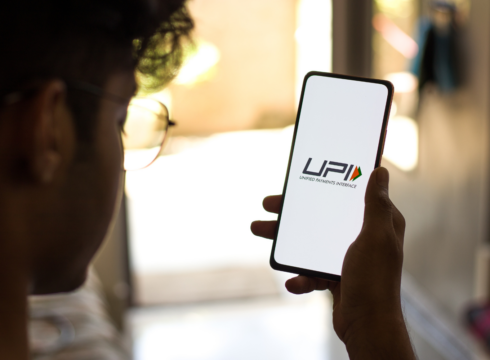The scheme aims to promote RuPay debit cards and low-value BHIM-UPI transactions under INR 2,000 for FY23
The acquiring banks will get a flat rate of 0.4% as incentive per transaction for non-industry programmes, which will be capped at INR 100
For industry programmes, the acquiring banks will get 0.15% per RuPay debit card transaction amount, capped at INR 6
Inc42 Daily Brief
Stay Ahead With Daily News & Analysis on India’s Tech & Startup Economy
Nearly a week after the Union Cabinet approved INR 2,600 Cr worth of incentives for the promotion of digital payments, the government on Monday (January 16) finally notified the scheme.
In its notification, the Centre ratified the scheme, which aims to promote RuPay debit cards and low-value BHIM-UPI transactions under INR 2,000 for the financial year 2022-23 (FY23).
“This incentive scheme will promote digital payments by incentivising banks to build a robust digital payments ecosystem and to promote RuPay Debit Cards and BHIM-UPI as low-cost digital payments mode across all sectors and segments of population,” the government noted in its official gazette.
The incentives will be made available to acquiring banks to promote point-of-sale (PoS) and ecommerce transactions as per rates defined in the order.
For RuPay debit card payments, the acquiring banks will get a flat rate of 0.4% as incentive per transaction for non-industry programmes. This amount will be capped at INR 100. For industry programmes, the acquiring banks will get 0.15% per transaction amount, capped at INR 6.
Industry programmes for RuPay debit card transactions cover industries such as insurance, education, agriculture, fuel, jewellery, and hospitals, among others.
On similar lines, the Union government has fixed incentive rates for each BHIM-UPI transaction at 0.25% for non-industry programmes, while the same rate has been set around 0.15% for industry programmes.
For UPI-BHIM transactions, industry programmes include transactions related to fuel, petroleum products, telecommunications, utility payments, and business and personal services, among others.
The Ministry of Electronics and Information Technology (MeitY), in consultation with the National Payments Corporation of India (NPCI), has been tasked with issuing operational guidelines for the implementation of the incentive scheme.
The notification added that the reimbursement of the claims with respect to acquiring banks would be undertaken on a quarterly basis.
“MeitY, in consultation with National Payments Corporation of India (NPCI), may review from time to time the utilisation of funds under the scheme and, accordingly, add or omit merchant categories included in industry programmes,” the notification read.
The order comes days after the Central Board of Indirect Taxes and Customs (CBIC), in a separate clarification, said that these incentives were subsidies and, hence, non-taxable.
This is not the first time that the centre has set aside funds for this reason. Before this, the government had provisioned INR 1,300 Cr for incentivising RuPay debit cards and BHIM-UPI transactions for FY22.
The move formally cements the announcements that surfaced earlier this month. While the incentives are expected to ease some burden on digital payment giants, industry bodies have called for the withdrawal of the zero merchant discount rate (MDR) regime and more financial support.
Recently, the chairman of Payments Council of India (PCI), Vishwas Patel, told Inc42 that the body has sought about INR 8,000 Cr in MDR support for the next fiscal for both RuPay and BHIM-UPI transactions.
Meanwhile, UPI continues to see strong traction. The payments interface processed 7,404.45 Cr transactions, totalling INR 125.95 Lakh Cr last year, led largely by PhonePe and Google Pay.
Note: We at Inc42 take our ethics very seriously. More information about it can be found here.


